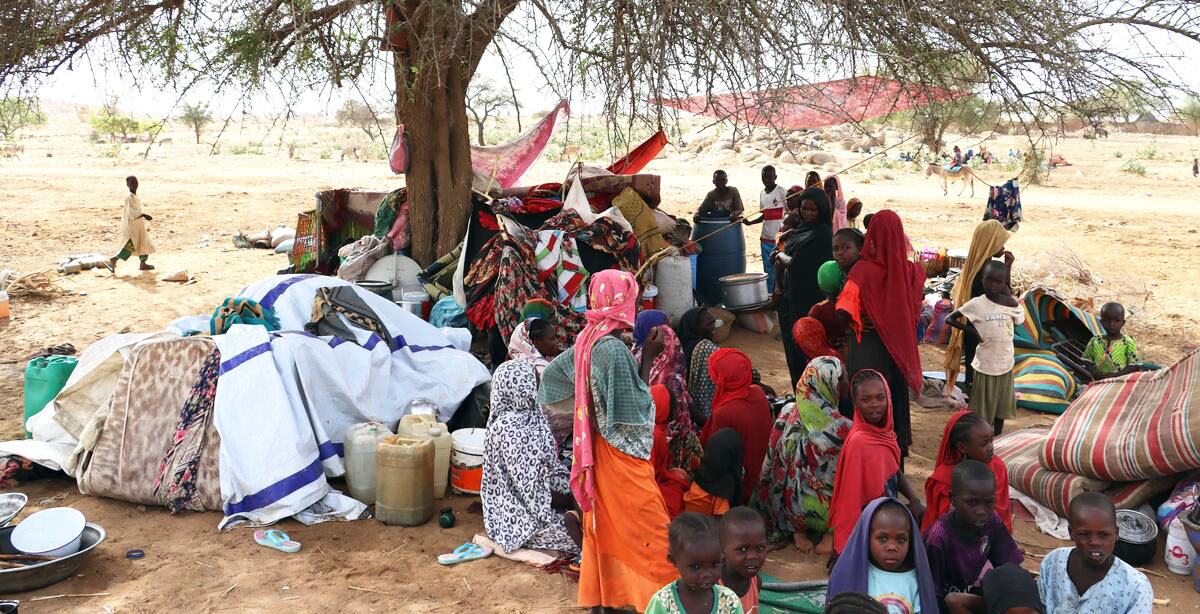
Khartoum residents in the states... Bombing and no insult
Moatinoon - Ali Tahir
Discontent with the displaced population of Khartoum in the states of the Sudan began to be evident, not from the darkness of living and the dwelling, but from the dry treatment and bullying of the majority there, so much so that they preferred to return to the outskirts of the capital, while some influenced the replacement of their headquarters in a neighbouring State.
The suffering of the displaced from Khartoum appeared on clippings of phrases buzzing with social media sites, one of whom wrote on the Facebook wall of his account "Ammunition ends, to entre Khartoum must get visa", the Post writer devoted these phrases to the residents of the Central Sudan state of Al Jazeera, another wrote. "Bombing, not insult", which clearly indicates the tension of relations between displaced Khartoum and the inhabitants of some of the provincial towns, which have been overwhelmed by the 7-month-old hosting burden of the war.
The platforms expressions were not the only witness to the situation of the victims of the absurd war, but some eyewitnesses of Sadiqs tongue confirmed personal experiences. Mohamed al-Mu taz said: Following the explosion of the situation in Khartoum last April, my family came out of Khartoum in haste to neighbouring Al Jazeera State. On the first day we were greeted with welcome, but almost a month later, we began to hear rhetoric along the lines of displaced people causing cost of living, where did those come from? Plus no cooperation and mishandling. Mu taz added: Strangely, when we go to the bakery to buy bread or groceries for some goods, when the seller knows that you are from Khartoum increases the price twice, it is this exploitation and opportunistic transaction that prompted us to return to Khartoum where my house is currently settled with Haj Yousef and thank God.
The bus driver Yousef exited the Mayo Khartoum neighbourhood just south of the belt in his clothes He went to Sennar, and there he started working as a driver, but he found objection from some of his colleagues who started harassing him with intent. He was forced to continue the journey of internal alienation, travelling to the west where the city of Kosti arrived in the presence of White Nile State. No harassment or bullying from his new colleagues ".
Awadullah Ali, who has packed his bags and is currently preparing to return to his home in the wounded city of Bahri, complains about the high cost of living and the grinding boil in the far eastern city of Port Sudan. Awad, who had entered the pension, emphasized that everything in the town had become (money) until it was dealt with. Investing here has become the language of the community, eating in restaurants can cost you one order of 5 thousand pounds. Housing is a complex and excessively expensive issue, nothing here is sustainable, and you will not be able to live like we were in Khartoum.
When the fighting intensified and became harmful, Professor Aziza Quida left her home in Kadro, north of Bahri, and travelled to El Obeid, North Kordofan. There, too, another war broke out and cannon fragments overhead the sand bride, forcing Quida and her family to travel back to Costi. On the way they were all looted, they stole their money, phones and personal belongings. When they arrived, Costi was all on Hodeida.
It is an embarrassing situation at a difficult time, and they all came down in a village adjacent to the city, which is crowded into Khartoums displaced people, who found good treatment. Professor Aziza says: Treatment here in Costi is good, we didnt feel like strangers, They deal with us wonderfully, its a good society, the only worrying thing is the cost of housing. rent costs between 300 and 600 thousand pounds. You will not find a dwelling below this price. Living and eating requirements are reasonable and do not discriminate as in some state cities that invested the conditions of Khartoums inhabitants displaced by war.
Imad Abdou, who travelled to the northern Sudan city of Atbara and lives under a tent inside a room-free house, did not feel that they were strangers or guests, not even displaced as called in some states. He said: "We live normally even though I miss our house in Khartoum. Regrettably, he wondered, "When do you end until reunification?"
Before the war, Khartoum was a home for guests of its relatives who inhabited the cities of the sister states, but today they have a stranger and the case of its displaced people says, as a wise man says, "What hurt me is a stranger who ignores me, but I am appalled by a relative who knows me."

